The notion of true altruism raises profound questions about the nature of human behavior and morality, with implications that extend beyond individual acts of kindness. While altruism is often regarded as a selfless concern for others, the complexities of human psychology and the interplay between self-interest and altruistic motives challenge the notion of pure altruism. As we navigate through the intricate web of altruistic behaviors and underlying motivations, a critical examination of whether genuine altruism can truly exist invites us to explore the depths of human nature and ethics in ways that may surprise and provoke contemplation.
Key Takeaways
- True altruism's existence is debated due to challenges in proving completely selfless behaviors.
- Empathy enhances altruistic behavior by fostering emotional understanding and strengthening social bonds.
- Altruism in economics and markets is influenced by incentives and aids in market efficiency.
- The dichotomy between self-interest and altruism complicates understanding and raises doubts about true altruism.
Definition of Altruism
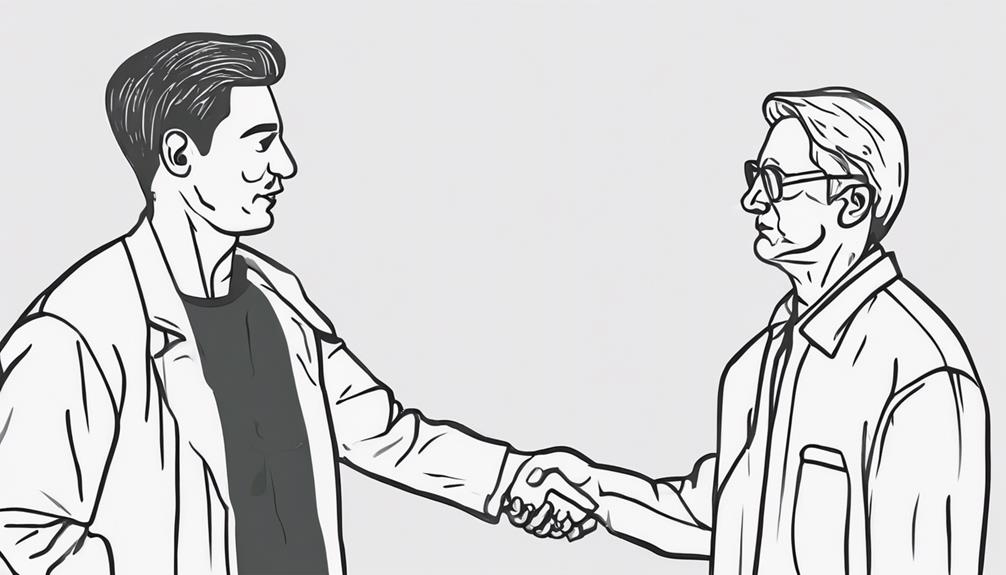
Altruism, a fundamental concept in social psychology, can be defined as the genuine and selfless concern for the well-being of others, prioritizing their welfare above personal interests or gains. When altruistic actions are performed solely for the benefit of others, without any expectation of reciprocity or personal benefit, it is termed as Pure Altruism. Pure Altruism embodies the essence of selflessness, where individuals engage in acts aimed at enhancing the lives of others without any ulterior motives. This form of altruism represents a rare and profound altruistic behavior where the sole intention is to promote the welfare of others. It stands in stark contrast to behaviors driven by personal gain or hidden agendas. The purity of intent in Pure Altruism distinguishes it from other forms of behavior that may have underlying self-serving purposes. Understanding the concept of Pure Altruism provides insight into the capacity for genuine care and compassion that individuals can exhibit towards others.
Evolutionary Perspective on Altruism
From an evolutionary standpoint, theories such as group-level selection and the selfish gene theory have been proposed to elucidate the underlying mechanisms driving altruistic behaviors in various species.
- Altruism can benefit genetic survival by promoting cooperation within groups, enhancing overall group success.
- Different evolutionary perspectives offer insights into the origins and mechanisms underlying altruistic behaviors in various species.
- The debate over the role of genes and groups in driving altruistic actions continues in evolutionary biology.
- Understanding the distinction between self-interest and true altruism is essential for comprehending altruistic behaviors.
Pure altruism, a concept where individuals act entirely for the benefit of others without any regard for personal gain, remains a topic of interest and debate in evolutionary biology. The evolutionary perspective provides a framework for understanding how altruistic behaviors may have originated and persisted in various species over time. By exploring the genetic and group-level influences on altruism, researchers aim to unravel the complexities of altruistic actions and shed light on the fundamental drivers of cooperation and selflessness in the natural world.
Psychological Egoism Explained
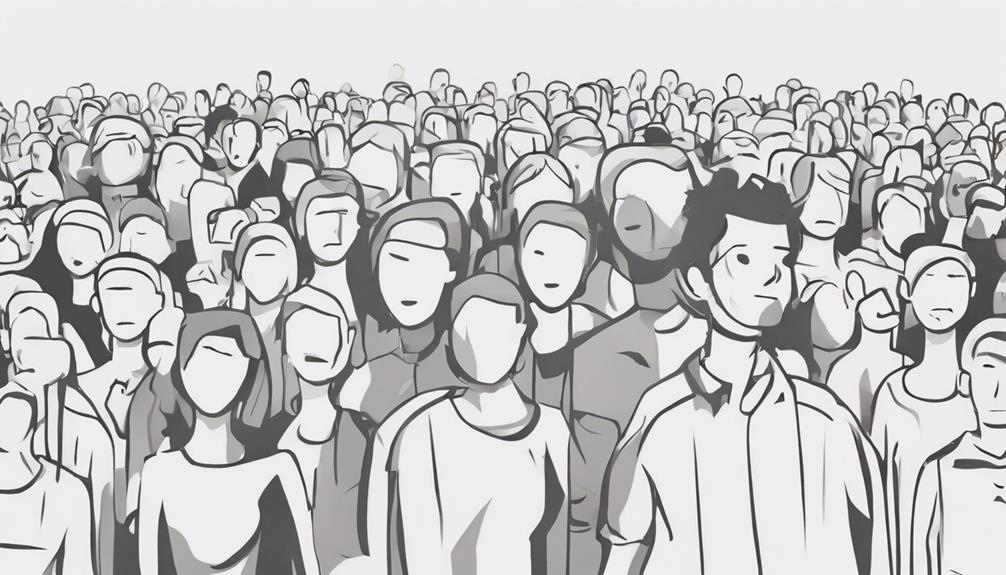
Psychological Egoism posits that all human actions stem from self-interest, suggesting that even seemingly selfless behaviors are driven by personal desires for satisfaction or validation. This theory challenges the notion of true altruism by asserting that individuals engage in actions ultimately to serve their own needs. By emphasizing the inherent self-interest in human actions, Psychological Egoism prompts a critical examination of the balance between altruistic intentions and underlying egoistic motives.
Human Self-Interest Nature
In examining human behavior, the theory of psychological egoism asserts that all actions are fundamentally driven by self-interest.
- Psychological egoism theory argues that all human actions are ultimately motivated by self-interest.
- It posits that individuals engage in actions to seek personal pleasure or avoid pain.
- According to this theory, even seemingly selfless acts can be traced back to self-serving motives.
- Psychological egoism challenges the idea of true altruism by suggesting that self-interest underlies all human behavior.
Understanding human self-interest nature through the lens of psychological egoism sheds light on the complexities of motivations behind apparently altruistic actions. This theory prompts a critical examination of whether true altruism exists, raising questions about the underlying motives behind seemingly selfless behaviors.
Altruism Vs. Egoism
Examining the fundamental motivations driving human actions, the theory of psychological egoism asserts that self-interest underlies every conscious decision. According to this theory, individuals engage in actions, including seemingly altruistic behavior, to ultimately gain personal benefits such as positive feelings or the avoidance of negative ones. For instance, acts like joining the military or donating blood, often seen as altruistic, may still be driven by internal desires for pride or satisfaction. This challenges the notion of pure altruism, suggesting that even seemingly selfless acts may have underlying personal incentives. While the debate on true altruism continues, psychological egoism provides a critical perspective on human behavior, highlighting the complex interplay between self-interest and seemingly altruistic behaviors.
Self-Interest Vs. Altruism
The debate between self-interest and altruism revolves around the fundamental question of whether true selflessness can exist in human behavior.
- Psychological egoism theory argues that all actions are ultimately motivated by self-interest, challenging the concept of true altruism.
- Examples of non-altruistic acts, like joining the military or donating blood, may still provide personal benefits or satisfaction despite appearing altruistic.
- While true altruism, where one acts without any self-interest, is debated, individuals can still engage in selfless acts driven by internal desires.
- Benefits of non-altruistic acts suggest that even seemingly selfless behaviors may have underlying personal incentives or rewards for the actor.
The dichotomy between self-interest and altruistic concern for others complicates the understanding of human behavior. It raises questions about the authenticity of purely selfless actions, prompting a closer examination of the motives behind seemingly altruistic deeds. By exploring the interplay between self-interest and altruism, we can gain insight into the complexities of human nature and the intricate balance between personal motivations and altruistic behaviors.
Altruism in Economics

Altruism in economics raises questions about the compatibility of selfless behaviors with profit-driven motives. Examining how economic incentives shape altruistic actions and their impact on market dynamics is crucial for understanding the complexities of altruism within economic systems. The interplay between self-interest and serving others in economic contexts underscores the intricate balance required for sustainable personal and professional success in economic endeavors.
Economic Altruistic Behaviors
Within economic systems, the manifestation of altruism through prosocial behaviors plays a crucial role in shaping interactions and outcomes.
- Altruism enhances the welfare of others in economic transactions.
- Wilson's group-level selection theory influences altruistic behaviors in self-regulating economic groups.
- Hayek's emphasis on free market efficiency underscores the importance of spontaneous order in economic altruism.
- Critiques of central planning and heavy regulation highlight the impact on hindering altruistic economic communication.
Prosocial behaviors in business are fundamental for cultivating altruism within economic frameworks, ultimately contributing to the betterment of society as a whole. By understanding and promoting economic altruistic behaviors, we can create more sustainable and equitable economic systems that prioritize the welfare of all individuals involved.
Incentives and Altruism
Building upon the foundational understanding of economic altruism and its implications for business and society, the examination of incentives in altruistic behaviors within economic systems offers insight into the complex interplay between self-interest and serving others. In the context of economics, incentives can influence individuals' decisions to engage in altruistic acts. This dynamic relationship between incentives and altruism is crucial in understanding how self-regarding preferences interact with prosocial behaviors. One way to analyze this is through the lens of the "selfish gene" theory, which posits that even seemingly altruistic actions can be ultimately self-serving at a genetic level. This concept challenges traditional views of altruism as purely selfless acts and highlights the intricate nature of human motivations in economic contexts.
| Column 1 Header | Column 2 Header | Column 3 Header |
|---|---|---|
| Row 1 Data | Row 1 Data | Row 1 Data |
| Row 2 Data | Row 2 Data | Row 2 Data |
| Row 3 Data | Row 3 Data | Row 3 Data |
| Row 4 Data | Row 4 Data | Row 4 Data |
| Row 5 Data | Row 5 Data | Row 5 Data |
Altruism Impact on Markets
In examining the impact of altruism on markets within the realm of economics, the interplay between prosocial behaviors and market dynamics reveals intricate connections that shape economic outcomes.
- Altruism in economics involves serving others within market dynamics.
- Wilson's group-level selection theory connects to self-regulating small groups in economic contexts.
- Promoting altruistic actions in business helps in market efficiency.
- Hayek's view on free market economies mirrors evolutionary processes, emphasizing spontaneous order.
These aspects showcase how altruism in economics emphasizes the importance of helping others, contrasting with central planning and regulation while highlighting the significance of economic communication. The integration of altruistic behaviors within market mechanisms can lead to a more efficient and harmonious economic system.
The Role of Empathy
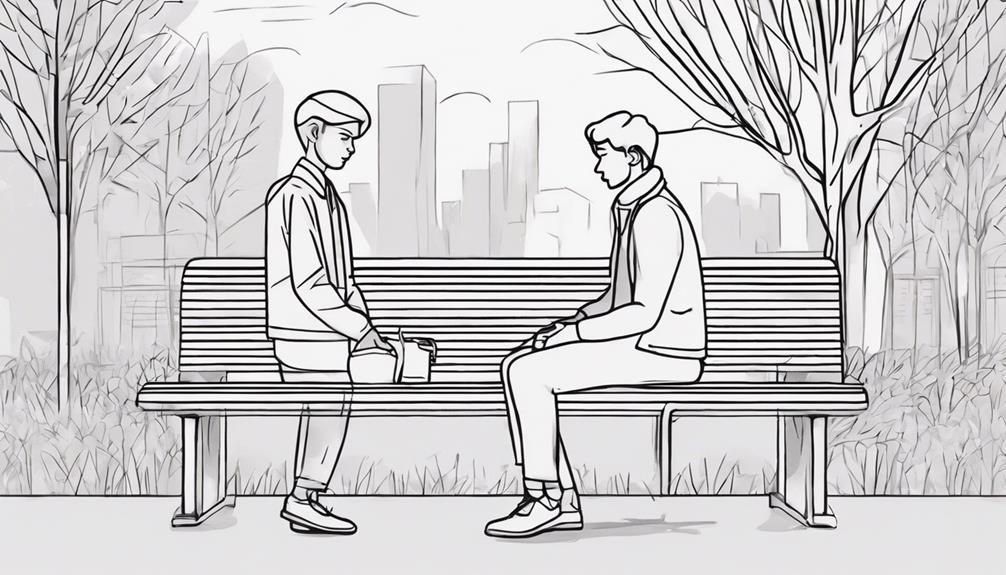
Empathy serves as a fundamental component in fostering altruistic behavior by facilitating individuals' ability to comprehend and share the emotional experiences of others. Research indicates a strong correlation between empathy and altruism, with studies demonstrating that heightened levels of empathy are associated with increased altruistic and prosocial actions. Neuroscientific investigations have revealed that the brain regions involved in empathetic responses overlap with those linked to altruistic decision-making processes, suggesting a neurological basis for the connection between empathy and altruism.
Moreover, empathy plays a pivotal role in establishing emotional connections with others, which in turn can motivate individuals to engage in acts of kindness and selflessness. By engaging in activities that promote perspective-taking and enhance empathetic abilities, individuals can cultivate their capacity for empathy, leading to a greater propensity for altruistic behaviors and compassionate actions. Ultimately, the role of empathy in altruism underscores its significance in shaping individuals' tendencies towards helping others and contributing to the welfare of society.
Altruism in Social Psychology
Altruism in social psychology delves into the underlying motives that drive individuals to act selflessly, examining the intricate interplay of personal values, societal norms, and psychological factors. This field of study sheds light on the profound impact of altruistic behaviors on both individuals and communities, offering insights into the evolutionary roots of altruism and its adaptive significance in human social interactions. By exploring the complexities of altruism through a scientific lens, social psychology contributes valuable knowledge to our understanding of prosocial behavior and cooperative dynamics within society.
Motives Behind Altruism
Exploring the underlying motives that drive individuals to engage in selfless acts for others is a key focus of research on altruism in social psychology.
- Researchers delve into whether altruistic behavior is truly selfless or influenced by motives like social approval or personal satisfaction.
- Studies indicate that even apparently altruistic actions may contain elements of self-interest or personal gain.
- Unraveling the true nature of selfless behavior in social interactions involves understanding the complex interplay of motives behind altruism.
- Psychological research aims to uncover the intricate mix of genuine concern for others and potential self-serving motives that underlie altruistic actions.
Impact of Altruistic Acts
Understanding the repercussions of altruistic behaviors within social interactions is crucial for elucidating the dynamics of human cooperation and trust-building mechanisms. Altruistic acts serve as signals of cooperative intentions, fostering reciprocity and social bonding that contribute to a positive social fabric. By nurturing and protecting individuals within a community, altruism promotes a sense of wellbeing and connectedness. Moreover, engaging in altruistic acts can inspire individuals to find meaning and purpose in life, enhancing overall life satisfaction. Beyond individual benefits, the impact of altruism extends to society as a whole, promoting kindness and empathy among members. Thus, altruistic behaviors play a fundamental role in shaping social relationships, strengthening communal ties, and fostering a harmonious and supportive environment for all.
Evolutionary Perspectives on Altruism
The evolutionary perspective on altruism in social psychology delves into the mechanisms by which selfless behaviors may confer advantages for gene survival and group cohesion.
- Altruism can benefit gene survival by promoting cooperation within a group.
- Social psychology examines how altruistic acts signal cooperative intentions and strengthen social bonds.
- Altruistic behaviors can stem from a desire to nurture individuals and maintain the social fabric of a community.
- Understanding the evolutionary roots of altruism sheds light on how selfless actions contribute to the well-being of a group.
Research in social psychology explores the intricate interplay between altruism, social relationships, and group dynamics, providing insights into the complexities of human behavior and societal functioning.
Altruism Vs. Prosocial Behavior
Altruism and prosocial behavior represent distinct forms of social conduct in which individuals engage in actions benefiting others, albeit with differing underlying motives. Altruism involves selflessly prioritizing others' welfare over personal well-being, demonstrating pure altruistic intentions. On the other hand, prosocial behavior encompasses acts that benefit others but may also involve some degree of personal interest or benefit. Unlike true altruism, prosocial behavior may include elements of self-interest or personal satisfaction. Understanding the nuances between these two concepts is crucial in unraveling the complexity of human motivations when assisting others. While both altruism and prosocial behavior involve helping others, the key disparity lies in the absence of any personal gain motive in pure altruistic acts. This distinction highlights the intricate interplay between selfless acts and those driven by a mix of altruism and self-interest, offering valuable insights into the underlying mechanisms of human social behavior.
Altruism in Philosophical Debates
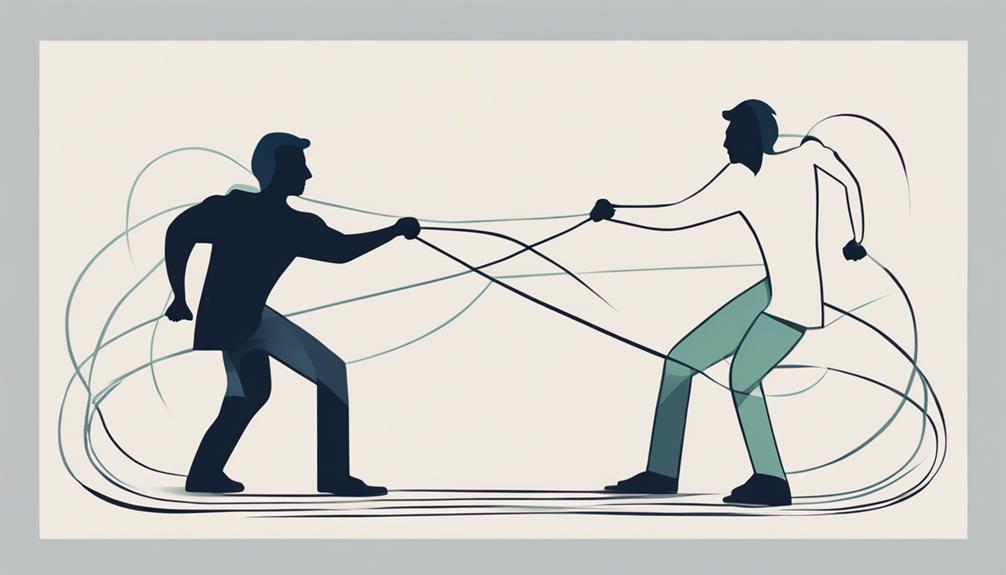
In philosophical discourse, the debate surrounding the authenticity of selfless acts remains a contentious and intricate subject of analysis.
- Pure intentions: Philosophers often discuss the purity of intentions in altruistic actions, questioning whether true altruism, devoid of any hidden motives, is achievable.
- Human complexity: The complexity of human nature and motivations adds layers to the debate, making it challenging to determine the genuineness of altruistic behavior.
- Ethical implications: Discussions in philosophy delve into the ethical implications and moral foundations of altruistic actions, exploring the underlying principles that drive selfless behavior.
- Psychological and social dynamics: Philosophical debates on altruism also analyze the fundamental nature of altruism and its intricate relationship with human psychology and social dynamics.
These discussions aim to unravel the intricate nature of altruism, shedding light on the philosophical perspectives that shape our understanding of selfless acts.
Challenges to True Altruism
Challenges to the existence of true altruism persist in philosophical discourse, prompting scrutiny into the authenticity of selfless actions. One of the primary challenges comes from the perspective of psychological egoism, which posits that all human actions are fundamentally self-interested. Proponents of this view argue that even seemingly altruistic behaviors are ultimately driven by self-serving motives, such as seeking personal validation, feeling good about oneself, or gaining social approval. According to psychological egoism, individuals engage in acts of apparent altruism because these actions fulfill their own psychological or emotional needs.
Critics of true altruism often point to the concept of hidden self-interest, suggesting that individuals may derive some form of benefit, whether tangible or intangible, from their altruistic deeds. This perspective raises doubts about the existence of purely selfless intentions behind acts of kindness or generosity. The ongoing debate surrounding true altruism underscores the complexity of human motivation and the challenges in definitively proving the existence of completely selfless behaviors.
Neuroscientific Insights on Altruism
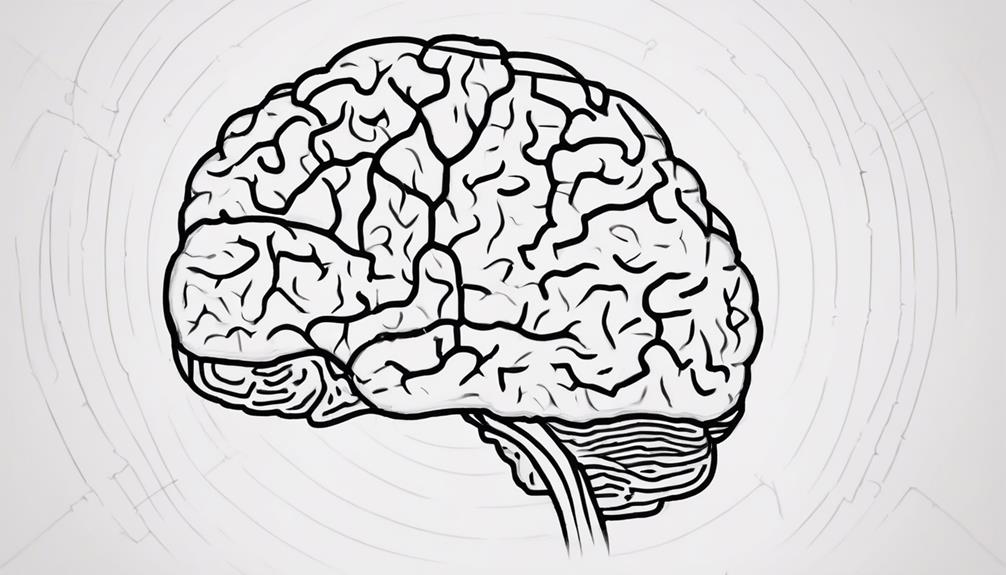
Investigating the neural correlates of altruistic behavior through fMRI studies offers valuable insights into the underlying mechanisms driving selfless actions and the interplay between brain activity and altruistic motives. Neuroscientific research has revealed compelling findings shedding light on the neural underpinnings of altruism:
- fMRI studies have shown distinct neural responses when individuals donate to charity for altruistic reasons compared to non-altruistic motives.
- Neural reward areas in the brain light up differently when money is directed towards charity versus oneself.
- The neural pure-altruism index derived from fMRI data correlates with actual charitable donations, indicating a link between brain activity and altruistic behavior.
- Research in neuroimaging provides insights into the underlying mechanisms of altruism by mapping brain regions involved in selfless acts.
Cultural Influences on Altruistic Behavior
Cultural influences play a pivotal role in shaping individuals' altruistic behaviors and attitudes towards others. Different societies have varying norms, values, and traditions that impact how altruism is perceived and practiced. The table below highlights some key cultural influences on altruistic behavior:
| Cultural Influence | Impact on Altruistic Behavior |
|---|---|
| Collectivism vs. Individualism | Cultures emphasizing collectivism may foster more altruistic actions focused on communal well-being, while individualistic cultures may prioritize personal success over altruism. |
| Religious Beliefs | Religious teachings often promote altruistic behaviors such as charity and helping those in need, shaping individuals' altruistic tendencies based on their faith. |
| Social Hierarchies | Societies with rigid social hierarchies may influence altruistic behaviors towards those of higher status, while more egalitarian societies may promote altruism towards all members equally. |
These cultural factors can significantly influence how individuals perceive, interpret, and engage in altruistic behaviors within their communities. Understanding these influences is crucial in exploring the complexities of altruism across different cultural contexts.
Can Altruism Truly Exist?

Culturally influenced perceptions of altruism lead to ongoing debates within scientific and philosophical realms regarding the genuine existence of true altruism. Despite the idealized notion of selfless acts, the concept of true altruism remains a topic of contention and intrigue. Here are some key points to consider:
- Challenges in Uncovering Motives: Philosophers question the authenticity of altruistic behaviors, as hidden motives may underlie seemingly selfless actions.
- Mixed Empirical Results: Studies examining altruistic behavior offer conflicting evidence, contributing to the uncertainty surrounding the existence of true altruism.
- Evolutionary Perspectives: Theories propose that altruism could enhance gene survival and be driven by empathy, shedding light on the origins of selfless acts.
- Moral and Scientific Inquiry: Despite skepticism, true altruism persists as a moral ideal and continues to captivate researchers seeking to unravel its complexities.
These factors underscore the complexity of understanding true altruism and the ongoing quest to determine its authenticity.
Frequently Asked Questions
Can There Be True Altruism?
In the ongoing altruism debate, the inquiry into the existence of true altruism persists. Examining actions devoid of self-interest raises questions about the purity of motives. While some posit that altruistic acts inherently hold personal benefits, empirical evidence struggles to definitively confirm or refute the presence of selfless altruism. The intricacies of this topic, situated at the intersection of psychology and philosophy, underscore the complexity and nuance surrounding the concept of altruism.
What Is an Example of Genuine Altruism?
An example of genuine altruism can be seen in selfless acts like an individual anonymously donating a substantial amount of money to a cause that aids those in need. Such actions are driven by a pure desire to improve the well-being of others without seeking any personal benefit or recognition. These instances of true altruism demonstrate a profound level of empathy, compassion, and altruistic behavior towards those experiencing hardship or adversity.
Is There Such Thing as an Altruistic Act?
There is ongoing debate regarding the existence of purely altruistic acts, without personal gain. Altruistic motivations may prompt individuals to engage in seemingly selfless actions, yet even these acts can yield benefits such as emotional satisfaction or social recognition. Determining the extent to which altruism is truly devoid of self-interest remains a complex challenge. Despite this, acts of kindness, driven by altruistic motivations, can still have positive impacts on both the giver and the receiver.
Can Altruism Exist Without Empathy?
In the ongoing altruism debate, the question of whether altruism can exist without empathy arises. Altruistic acts, driven by various motives such as moral principles, social norms, or a sense of duty, can indeed occur independently of empathetic feelings. This highlights the multifaceted nature of human behavior and the diverse factors influencing selfless actions. Understanding these different pathways to altruism expands our comprehension of altruistic behavior and its societal implications.
Conclusion
In the intricate tapestry of human behavior, the concept of true altruism remains a subject of debate and scrutiny. Despite the complexities of motives and potential hidden intentions, the possibility of selfless acts still flickers like a distant star in the night sky. As we navigate the terrain of altruism through the lens of science and philosophy, the quest for genuine altruism continues to captivate our minds and challenge our understanding of human nature.
